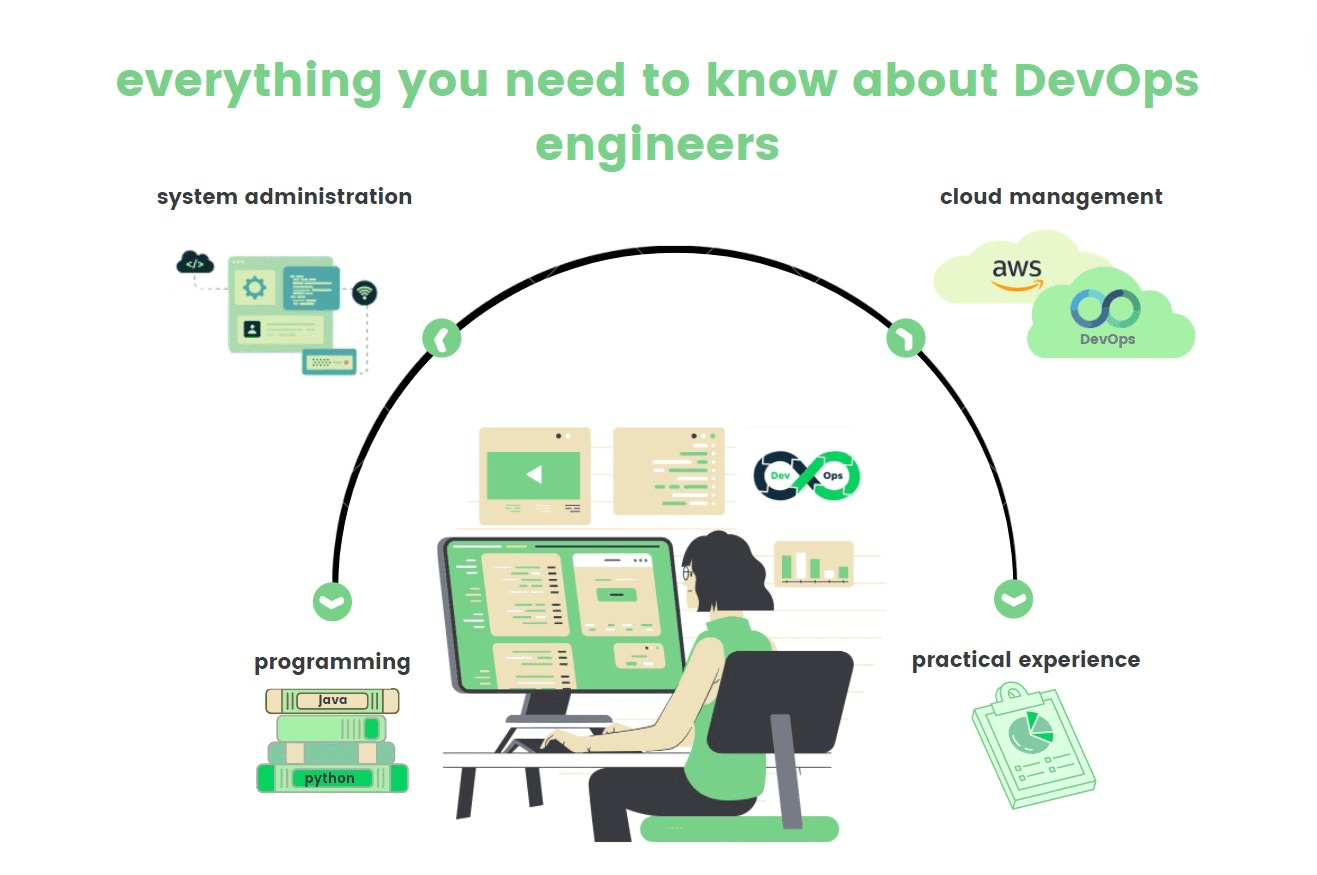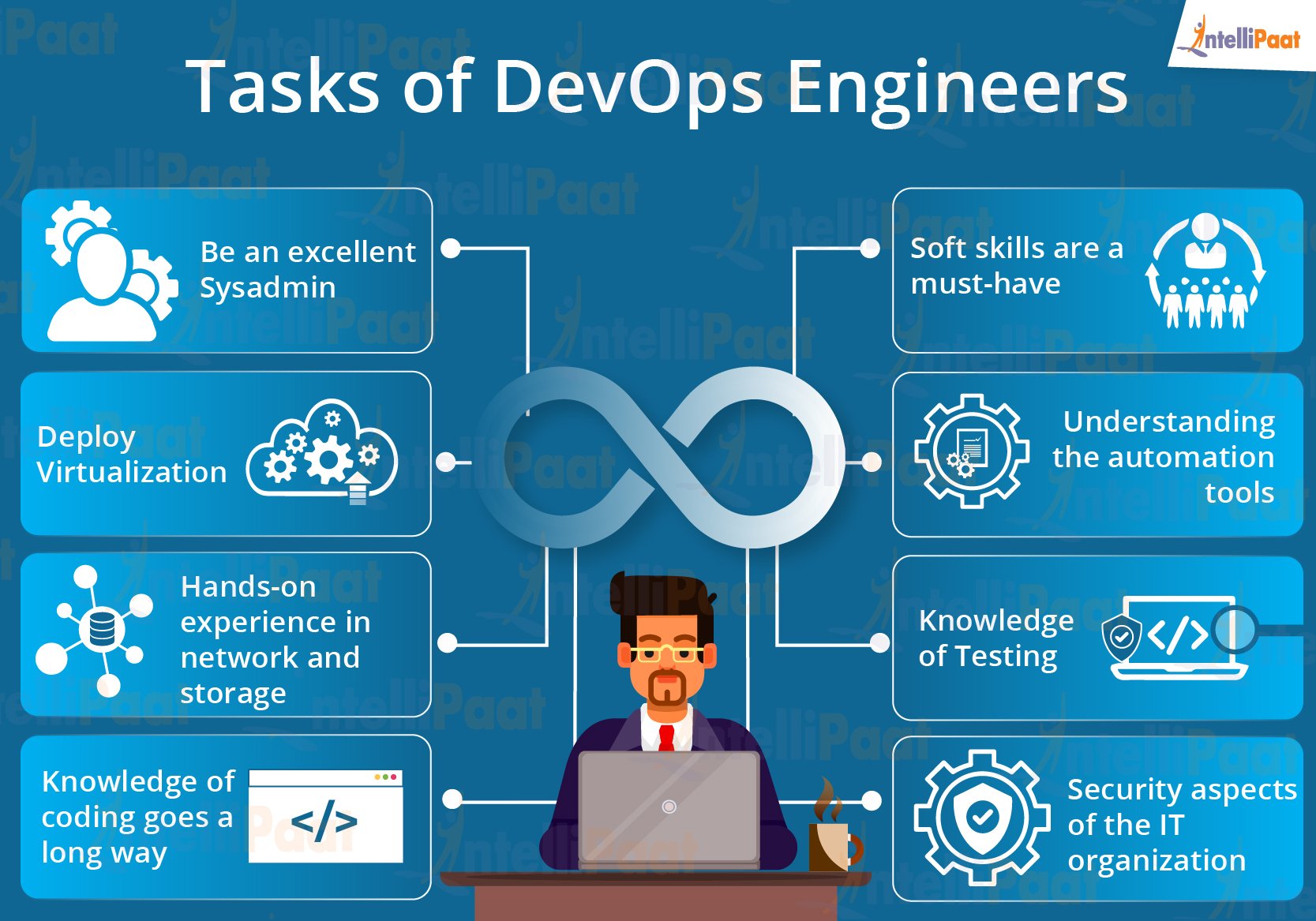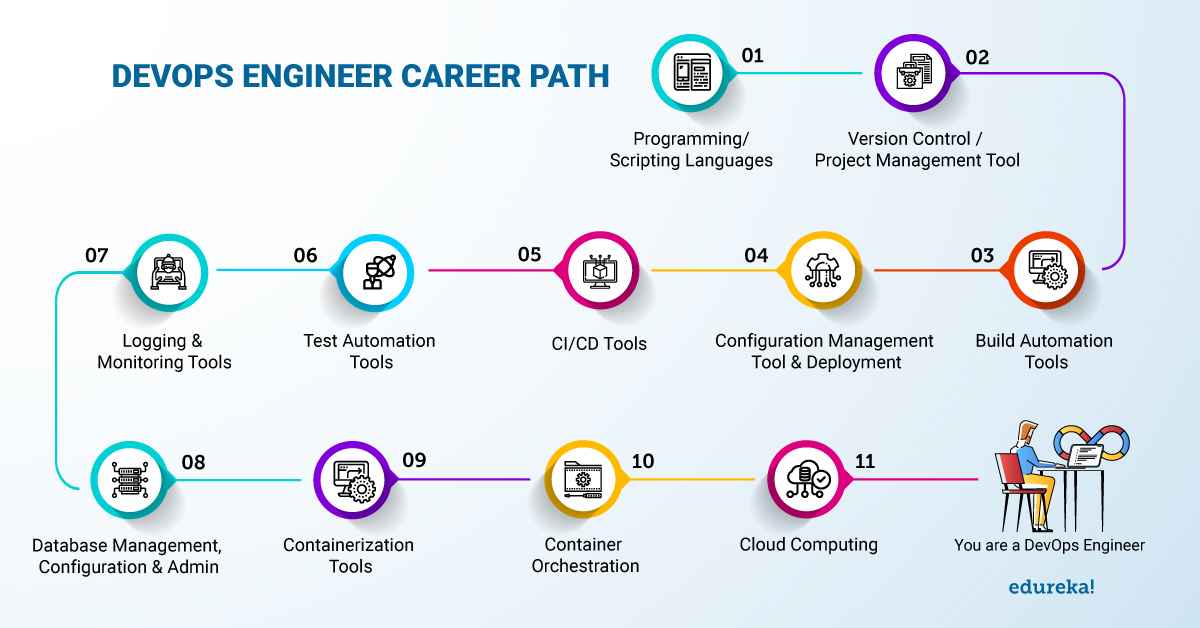
A DevOps (development–operations) engineer facilitates collaboration between an IT organisation’s development and operations teams in order to achieve increased productivity. They oversee the efficient release and use of new software code and products. DevOps engineers have advanced problem–solving skills and enjoy collaborating with others. As they manage teams of developers, they need to have a strong knowledge of the Software Development Life Cycle (SDLC), a six–stage process which guides software development projects. DevOps engineers work in IT companies and technology–driven organisations of all sizes.
It is methodology or culture where we can works for development and operations.
Roles and Responsibilities:

Test, build, design, deployment, and ability to maintain continuous integration and continuous delivery process using tools like Jenkins, maven Git, etc.
Must know how to choose the best tools and technologies which best fits the business needs.
Ability to automate test and deploy the code and monitor.
Work in close coordination with the development and operations team such that the application is in line with performance according to the customer's expectation.
How to become Devops engineer?
Learn programming languages.(
Python, Ruby, Go, Node.js)Study operating systems. (
Linux, Unix, Windows, Sockets)Version Control / Project Management Tool. (
GitHub, GitLab)Review networking security and protocols. (
HTTP, HTTPS, SSL, SSH)Understand Infrastructure as Code. (Containers, Container Orchestration, Configuration Management, Infrastructure Provisioning –
Docker, Kubernetes, Terraform, Ansible, CHEF, Puppet,)Explore Source Code Management and Build Tool Integration Techniques for Continuous Integration (CI):(
Gradle, Maven, npm)Learn How To Advance Continuous Integration For Continuous Testing (Continuous Delivery):(
Jenkins, Bamboo, TeamCity)Learn How To Deploy And Configure Dev, Test, And Prod Environment:(
Ansible, Puppet, CHEF)Invest in application and infrastructure monitoring.(
Prometheus, Nagios, Datadog, New Relic, Sentry)Observe cloud service providers. (
AWS, Azure, Google Cloud, Heroku)Study cloud design. (
Data Management, Design, and Implementation)
Pros for Devops in MNC's and Startups:-
Job security and stability.
Comparatively less hectic Best for Freshers.
Good Growth.
Cons for devops in MNC's and Startups:
Less Oppurtunities as freshers.
Comparatively older technologies.
Long Working hours.
Highl Risk and return.
Future of Devops in India:-
The future of DevOps is not without its challenges. Maintaining the balance between software delivery speed and quality will be tricky. The future of DevOps needs more focus on automation, monitoring, and security.
Many companies have widely adopted DevOps worldwide due to its ability to increase the speed of delivery of software and services. DevOps demand in the future is rising with the upcoming times. The future for DevOps is here to show its popularity.
India boasts a high population of over 1 billion people. This country has some of the best tech talents in the world, which is why it's becoming a popular destination for outsourcing and offshoring jobs. India has seen an increase in DevOps-related jobs, and startups are using DevOps to help them scale their business quickly and efficiently. India's large population and high concentration of tech talent will make it an attractive destination for DevOps to prosper.
DevOps has changed how we think about development and operations and has made it possible for organizations to release more software in less time. We are at a point where companies struggle to maintain their competitive edge as they compete with companies that have adopted DevOps.
DevOps teams must have a shared understanding of their company's business objectives and goals. To ensure these objectives are met, organizations should coordinate better with their stakeholders on what needs to be delivered from a technical perspective. The future of a DevOps role is that of a particularly optimistic one.